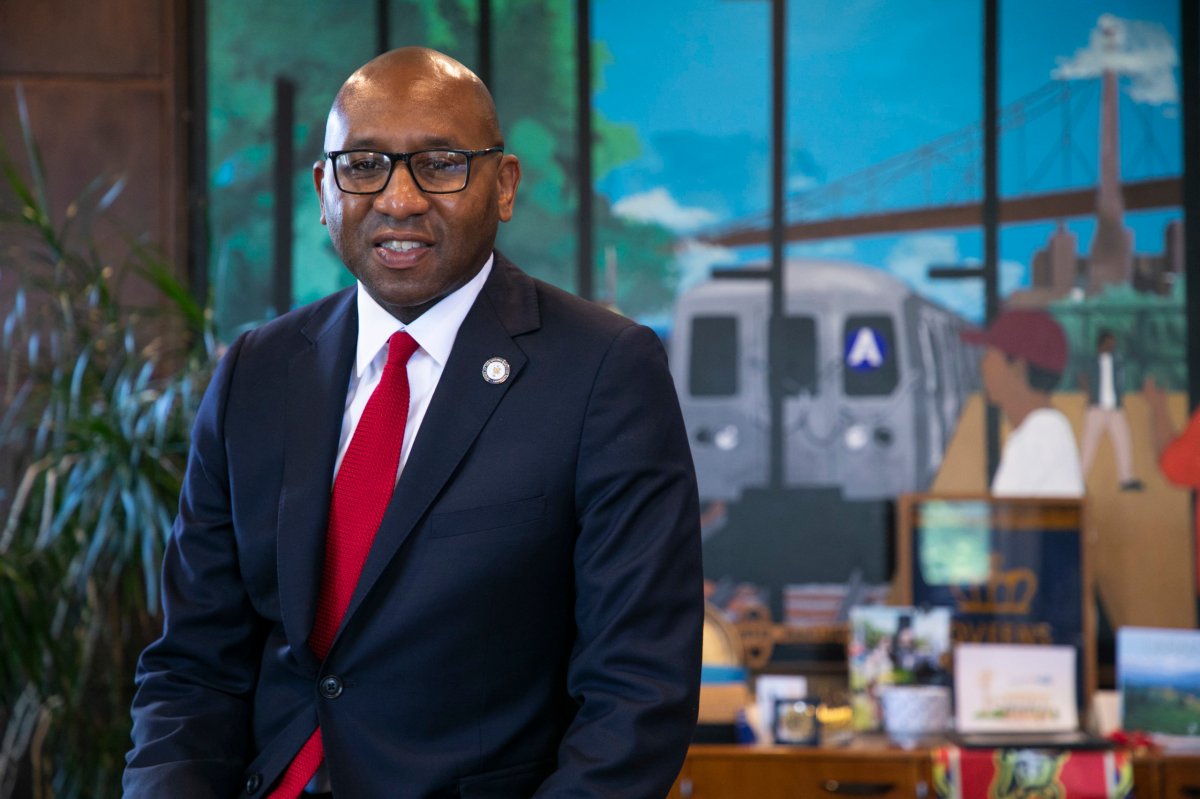In 2023, Queens Borough President Donovan Richards Jr. continued to build on his administration’s efforts toward rectifying long-standing demographic inequities in community board membership by doubling down on effective reforms and prioritizing appointees from underrepresented constituencies.
On Monday, Aug. 7, Richards’ office released its latest 2023 Queens Community Board Demographic Report, providing both an overview of the current demographic profiles of the community boards and a detailed, multilayered breakdown of this year’s diverse class of community board appointees.
Richards’ initiative to digitize the community board application in 2021 continues to be a major success in generating a deeper and more diverse pool of candidates for appointment to Queens’ 14 community boards. Since 2021, over 2,700 applications were submitted — the vast majority of which came from individuals who had not previously served on a board.
“I’m deeply proud of the strides we’ve made since I took office to make the community boards in Queens look and feel more like the rich and diverse neighborhoods they represent,” Richards said. “While we continue to set the standard for what community planning and engagement can look like, I know there is still much work to do to reach our full potential. I’m confident we will continue to do so in the years ahead.”
As detailed in the report, there were significant achievements across the community board appointment process in 2023.
In total, the Queens borough president’s office received 938 applications, which was only three applications short of 2021’s record-breaking total of 941. Of this year’s 366 appointees, 116 are first-time members who were not previously serving on a board — the largest number of new members appointed during the Richards Administration so far.
In line with Richards’ efforts to appoint younger members to their local community boards, 50% of new appointees are under the age of 45 and nearly 25% are between the ages of 16 and 35. Prior to Richards taking office in December 2020, less than 12% of sitting community board members were under the age of 35, while nearly three-quarters of all members were over the age of 45.
Of the 116 new community board members, nearly 20% identify as Hispanic/Latinx, an increase of nearly three percent from 2022’s group of new appointees. Moreover, African Americans make up nearly 22% of new appointees in 2023, while East Asian/Pacific Islanders make up nearly 14% and South Asians make up nearly seven percent. Nearly two-thirds, or about 64 percent, of the new appointees do not identify as “White,” a demographic category that has been historically overrepresented on community boards.
In this year’s new appointee class, slightly over 10% identify as LGBTQIA+, which is nearly double from last year’s percentage. Over 11% identify as a person with a disability; over 16% are immigrants, and 31% are the parent or guardian of a school-aged child.
Mass transit users make up a significant chunk of the 2023 class of new members as well, with more than half of the 116 new appointees — about 51% — reporting they “mostly” or “often” navigate Queens by using the subway, while nearly 89% said they at least “sometimes” use the subway to get around. Additionally, nearly 76% of new appointees at least “sometimes” ride the bus, and nearly 32% at least “sometimes” use a bicycle or other micro-mobility vehicle for transportation.
The community board appointments are a product of the Queens borough president office’s modernization of the application process and sustained outreach to potential applicants, particularly those from underrepresented constituencies, earlier this year. Efforts to simplify the process included digitizing the application into an easily-fillable online form that no longer required notarization.
The heightened interest also stems from Richards’ 2021 announcement of a series of good-government reforms aimed at establishing a centralized code of conduct for all 14 community boards, as well as a call for a holistic review of each board’s bylaws, making boards more welcoming places for new members.



































